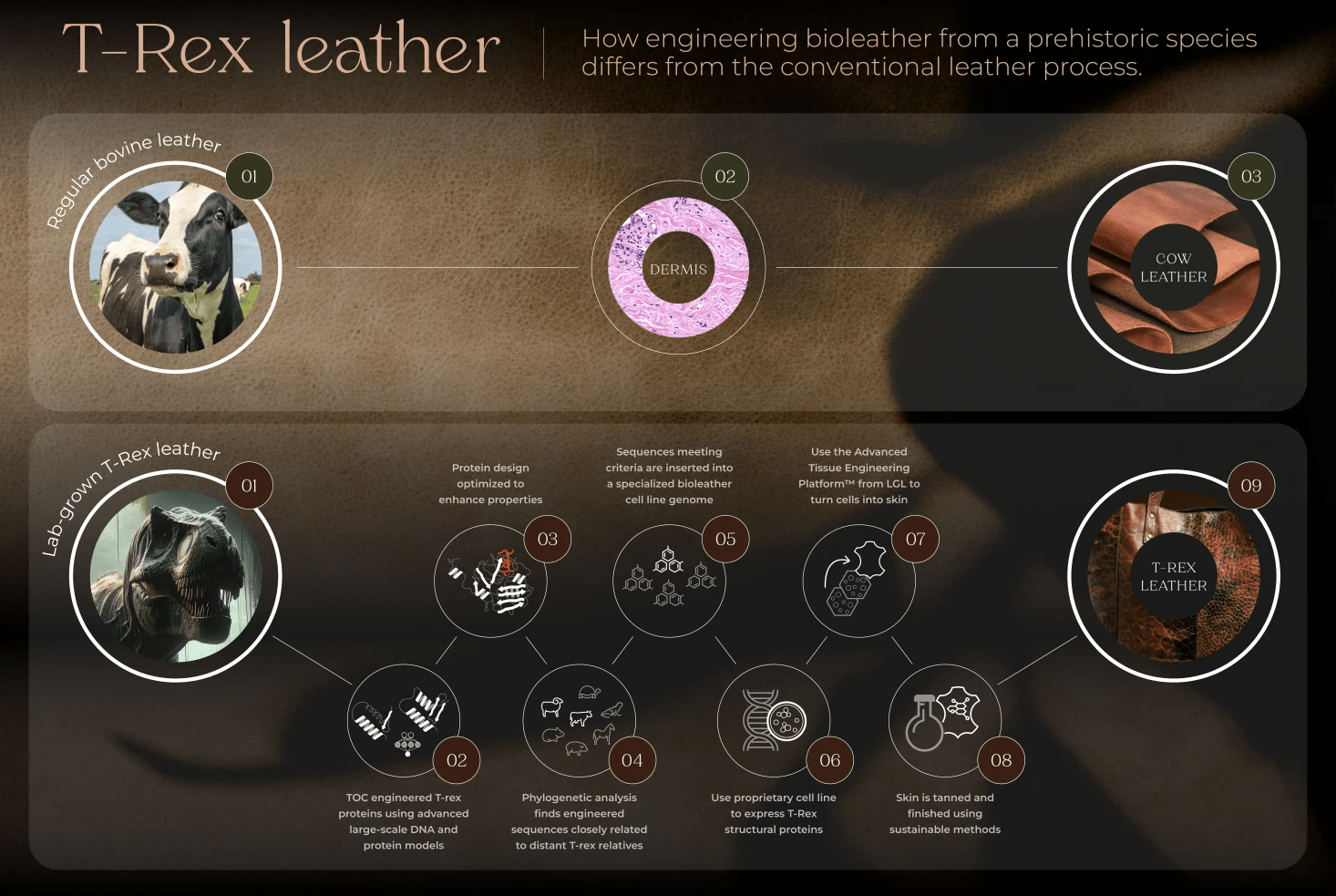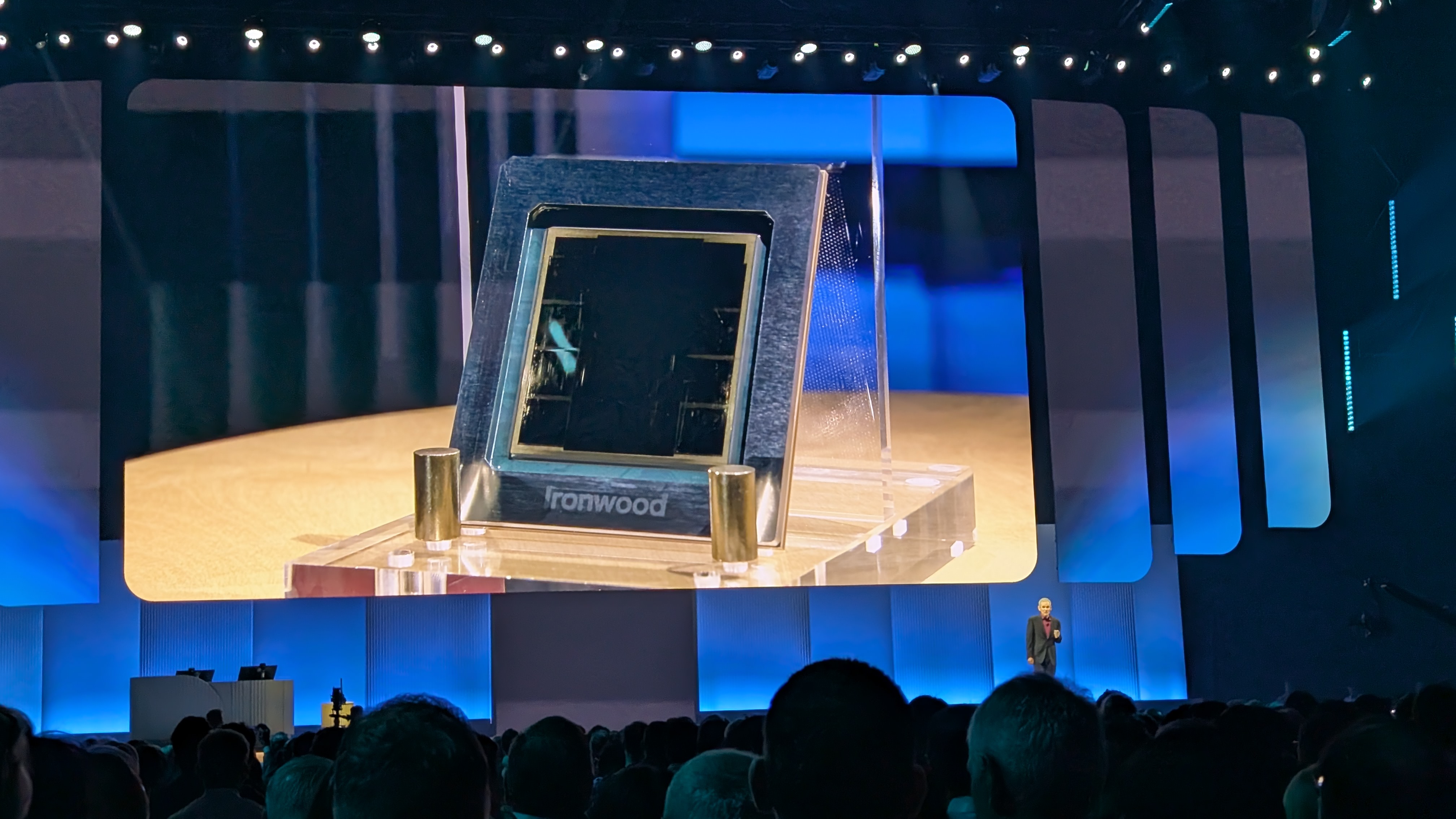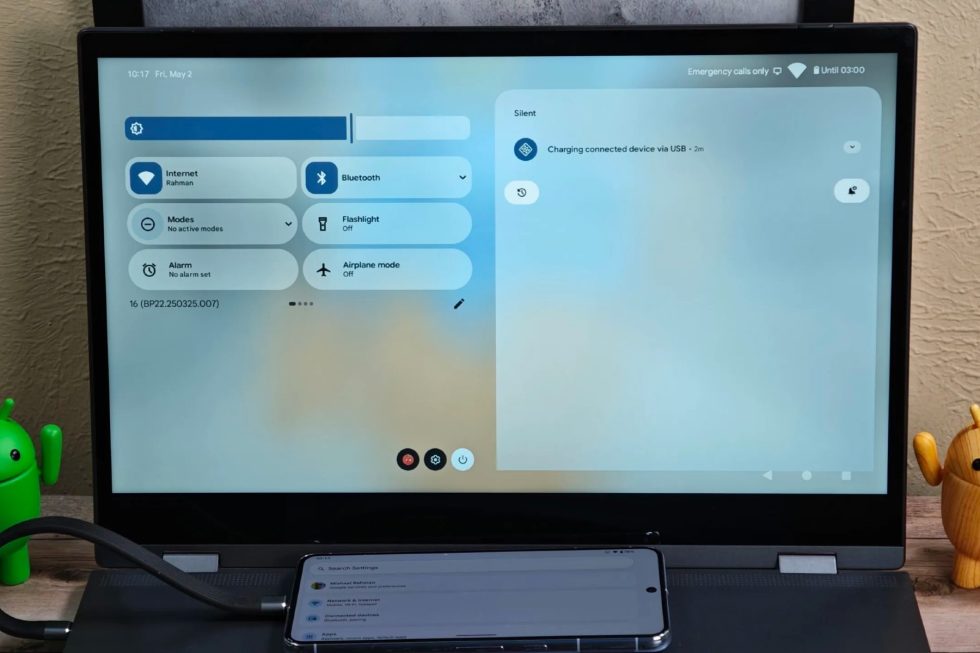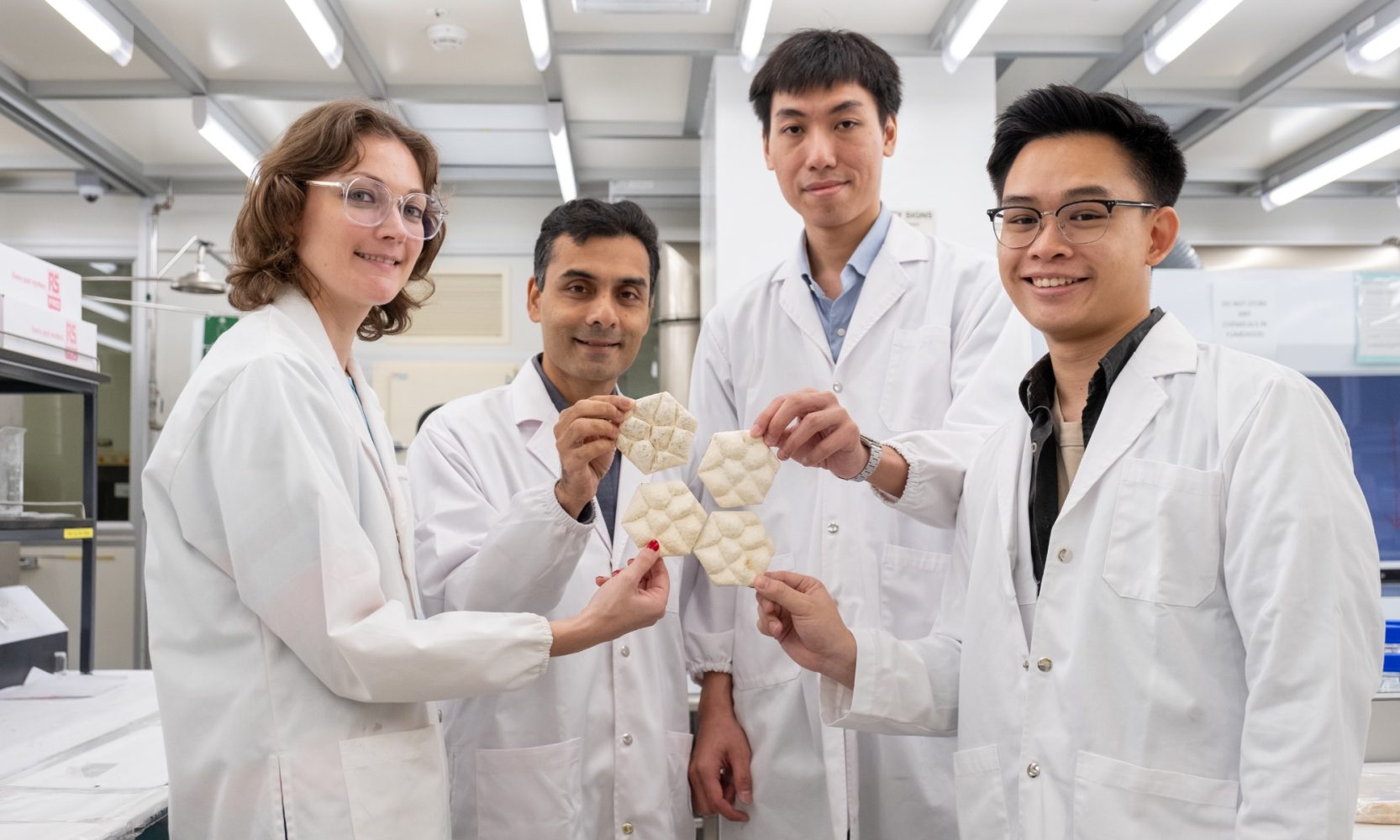These scientists want to grow T. rex leather in a lab
A team of biotech startups has announced a bold new project to develop lab-grown leather inspired by one of the most iconic dinosaurs in natural … The post These scientists want to grow T. rex leather in a lab appeared first on BGR.


A team of biotech startups has announced a bold new project to develop lab-grown leather inspired by one of the most iconic dinosaurs in natural history, the T. rex.
The initiative is a collaboration between three companies: The Organoid Company in the Netherlands, UK-based Lab-Grown Leather, and VML, a US marketing agency previously known for creating the "mammoth meatball." Their goal is to engineer lab-grown T. rex leather, a sustainable alternative to traditional animal leather that could meet the durability and quality standards of luxury goods.
The teams behind the project say their process will rely on ancient protein structures rather than actual dinosaur DNA. Despite headlines, there is currently no scientific method for retrieving intact DNA from a T. rex. Sadly, DNA breaks down over time, and no usable dinosaur genetic material has actually been recovered.
As it currently stands, the oldest known DNA ever sequenced comes from a 1.6-million-year-old mammoth and the T. rex went extinct roughly 66 million years ago. Instead, the group plans to work from fossilized collagen, the structural protein found in skin and connective tissue, and a core component of leather.

Collagen is known for its durability and flexibility, and fossil studies have occasionally suggested that trace amounts of it may survive in some rare, well-preserved specimens. But, even if fossil collagen fragments are recovered, turning them into a usable material will be a complex process.
Researchers will need to analyze the remaining protein sequences, reconstruct them based on comparisons with modern relatives (birds, particularly chickens), and translate them into genetic code. That code would then be inserted into lab-grown cell lines to begin producing the material.
It’s not clear how much of this process has actually been completed so far, or whether it will result in anything close to what we’d recognize as actual T.rex leather. But the companies involved say their goal is to push synthetic biology into new territory while promoting more sustainable approaches to material production.
If successful, lab-grown T. rex leather could help reduce environmental damage tied to cattle farming, tanning chemicals, and deforestation while also offering new ways to think about what materials we use and where they come from.
The post These scientists want to grow T. rex leather in a lab appeared first on BGR.
Today's Top Deals
- 67 best cheap Apple deals under $100
- Today’s deals: $320 iPad 11, $328 Sonos Move portable speaker, $90 Ninja blender, $400 off Freo Z Ultra, more
- Today’s deals: Free Amazon music streaming, $100 23-piece cookware set, $20 smartwatch, more
- Today’s deals: $15 Amazon credit, $730 Apple Watch Ultra 2, $20 Kasa security cam, $119 Bose speaker, more
These scientists want to grow T. rex leather in a lab originally appeared on BGR.com on Mon, 5 May 2025 at 09:33:00 EDT. Please see our terms for use of feeds.







































































































































































![[The AI Show Episode 145]: OpenAI Releases o3 and o4-mini, AI Is Causing “Quiet Layoffs,” Executive Order on Youth AI Education & GPT-4o’s Controversial Update](https://www.marketingaiinstitute.com/hubfs/ep%20145%20cover.png)









































































































































































































































































_Inge_Johnsson-Alamy.jpg?width=1280&auto=webp&quality=80&disable=upscale#)
















































































































![Under-Display Face ID Coming to iPhone 18 Pro and Pro Max [Rumor]](https://www.iclarified.com/images/news/97215/97215/97215-640.jpg)
![New Powerbeats Pro 2 Wireless Earbuds On Sale for $199.95 [Lowest Price Ever]](https://www.iclarified.com/images/news/97217/97217/97217-640.jpg)
![Alleged iPhone 17-19 Roadmap Leaked: Foldables and Spring Launches Ahead [Kuo]](https://www.iclarified.com/images/news/97214/97214/97214-640.jpg)





































































































